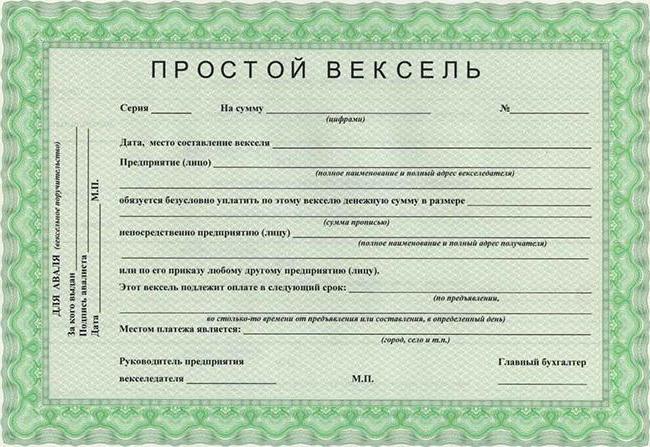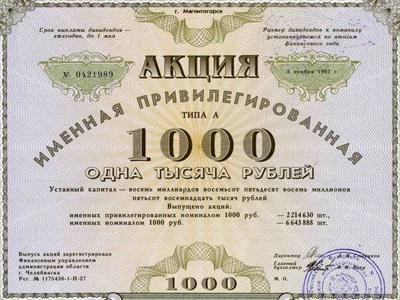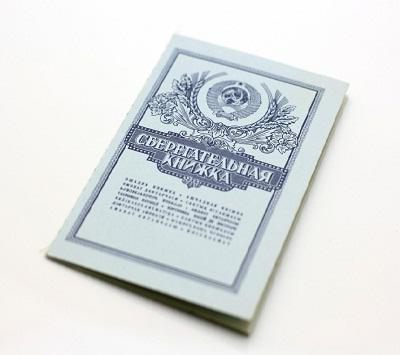The attractiveness of securities for investing money by ordinary people is undeniable and is explained by a relatively simple method of acquisition. In addition, with the right choice, this is a fairly reliable way to save, and if you're lucky, then increase family finances. Perhaps the only choice is the problem. But, clearly defining your capabilities, as well as taking into account and evaluating all the dangers, you can make a profitable investment.
In which case are the risks lower and the degree of profitability higher? What to prefer: the acquisition of securities in which the owner is proudly named, or to simplify the task even more and buy bearer securities? In both cases there are advantages, as well as negative aspects. But today we will discuss the situation when bearer securities are used as a financial instrument.
What it is?
Jurisprudence defines it as a document drawn up in the established form, in the presence of mandatory details. In addition, a bearer security is a guarantor of certain property rights. The exercise of these rights is possible only if the aforementioned document is available. Physical provision, as can be seen from the definition, is completely sufficient to ensure the lawful fulfillment of obligations. In modern realities, these financial documents are a necessary market tool, which has been widely used in the creation of joint-stock companies, privatization, in the preparation of credit obligations, in the development of various payment financial systems.
In general, there are registered and bearer securities.
Stages and features of development
As state bills, for the first time in Russia, presentation documents arose at the end of the 18th century. The decree "On the establishment of banks ...", adopted in 1768, it was determined that the person presenting the bank notes is automatically recognized as the owner and he needs to pay their cost without a receipt. In general, this definition is still considered the most appropriate.
Over time, with the monopolization of banknote emissions by bearer government agencies, they began to issue receipts, tickets, certificates, as well as long-term loans and shares. Under the Soviet regime, the distribution of lottery tickets was extremely popular. Banking, deposit, savings certificate, government securities, promissory note, bond, lottery ticket, option, check - all this is designated by the current Russian financial system as a bearer security. Actually, the value significance is not even the form of the document itself, but the information component about certain civil rights. The exercise of these rights occurs when the papers themselves are presented.
Separately, the debt documents are reviewed, which confirm the receipt of a loan, since they are not considered securities. Since the lender always has the opportunity to claim debt without submitting a document. To do this, it is enough to confirm the repayment of the amount of debt with a corresponding receipt. The fulfillment of obligations certified by securities without providing the securities themselves is possible only by decision of the judicial authorities (recognized as invalid in court). What is unique bearer security?
Benefits & Features
It is the possibility of presentation for execution by any holder that is considered the main advantage of this financial instrument. If we compare bearer securities with securities of other types, it is this fact that increases their turnover and financial attractiveness. It should be noted that the norms of Russian law practically do not regulate the relations between the holder of presentation documents and the issuer. Scattered items are presented in some articles of civil and civil procedural legislation (Articles 143, 145, 146, 148, 302, 843 and 917). It is agreed that all rights determined by this monetary document belong to the person who presented it.
What is an order security and bearer security? About it further.
An organization with obligations must implement them upon presentation by the holder, requiring only a document for identification. In this situation, the guarantor of the full exercise of the rights of the owner is considered to be presentation papers by themselves. To present them to a third-party entity, the usual transfer from one hand to another is sufficient. Obviously, such a simple procedure is attractive to citizens. In addition, the complete lack of information about the owner can also be attributed to the benefits. Holders of registered securities during the preparation of financial documents are forced to inform themselves about a sufficiently large amount of information. Another indisputable advantage, as we have already mentioned, is the accessibility and ease of delivery to other holders (of course, this statement can be considered controversial, for example, in a situation of loss or damage).
Types and characteristics of bearer securities
Securities are executed on strict reporting forms, without fail contain details defined by the relevant provisions of the law:
- Title.
- Date of deposit of money.
- The exact name of the issuing organization.
- Legal address.
- Face value.
- Payment term.
- Interest rate and interest.
- Other information, if deemed necessary.

In addition, securities are registered and bearer. Classification of monetary securities is carried out in various ways, highlighting a property, for example, a validity period, as a defining feature. Accordingly, they distinguish between time-limited and unlimited validity. In addition, they are divided by type and form. For example, the issue of cash loans in the form of bonds is possible by enterprises, organizations (if this activity is reflected in the charter documents), as well as by the state. The purchase of bonds allows the holder to receive the value expression from the issuer in the future.
Bill of exchange
A bill of exchange is an order security, which certifies the right to transfer one obligation to another and gives the right to the person who has it to claim the amount of money established in it. It is drawn up in a strictly designated form. A check is a document that can be exchanged at a credit institution for money. Our fellow citizens very actively use checks, preferring them to all other methods. A document certifying the ownership of the goods being transported is called a bill of lading. It is issued by the carrier to the cargo owner. What other types of bearer securities exist?
Bill of lading
A document certifying the ownership of the goods being transported is called a bill of lading. It is issued by the carrier to the cargo owner. It is also an order security. The issuance of a bill of lading solves several functional problems at the same time: it does not require a receipt for the goods, replaces the bill of lading, can be a confirmation of contractual obligations to move the goods, a document confirming the right to dispose of the goods, and can also serve as a loan guarantee for the goods issued.
Initially, a bill of lading was used to transport goods by sea. Now the use of this document is possible when transporting by any means of transport. A document indicating the amount of a bank investment and the owner’s right to receive funds after the regulatory period has passed is called a bank certificate. What bearer securities are available? They are often interested in this.
Stock
The documentation that determines the share in the company’s ownership and secures the shareholder’s ability to receive the part of the profits from the company’s income, as well as the right to take part in the work of the company, determines the possibility of obtaining part of the property if the company is to be liquidated, is called shares. A deposit and an ordinary savings book have long been the most common financial instruments and have received sustainable development in Russia. The savings book gives you the right to manage financial resources and displays information about the amount of savings. This financial instrument has a number of positive and negative signs that need to be discussed separately.
Bearer Savings Book
The advantages of using a passbook can include the following: contains detailed information about all financial movements, details of the personal account and bank branch, the timing of operations; each financial transaction is accompanied by a withdrawal of the balance of available funds; for appeal to the courts in any controversial case, this is an official document. Deficiencies also exist and cannot be discounted. Firstly, anyone can use a lost or lost passbook, and secondly, you can restore a passbook only if you have a court order. Thirdly, there is no guaranteed deposit insurance.
How to store it?
Given all of the above, it is recommended to store such documents in banking organizations, this will protect the owner of the book from theft or loss. And also relieve from further litigation to restore the rights to financial investments. Issuing a passbook without specifying the owner in modern conditions is quite rare, mainly banks give preference to registered documents.
Conclusion
It must be recalled that employees of financial institutions responsible for the issue of securities bear full responsibility before the law for the actions taken. Attempting to issue such documents without having permits issued by the relevant authorities may entail legal liability. Holders of financial documents in this case are deprived of ownership, and the issued securities themselves are canceled.
We reviewed a documentary bearer security.